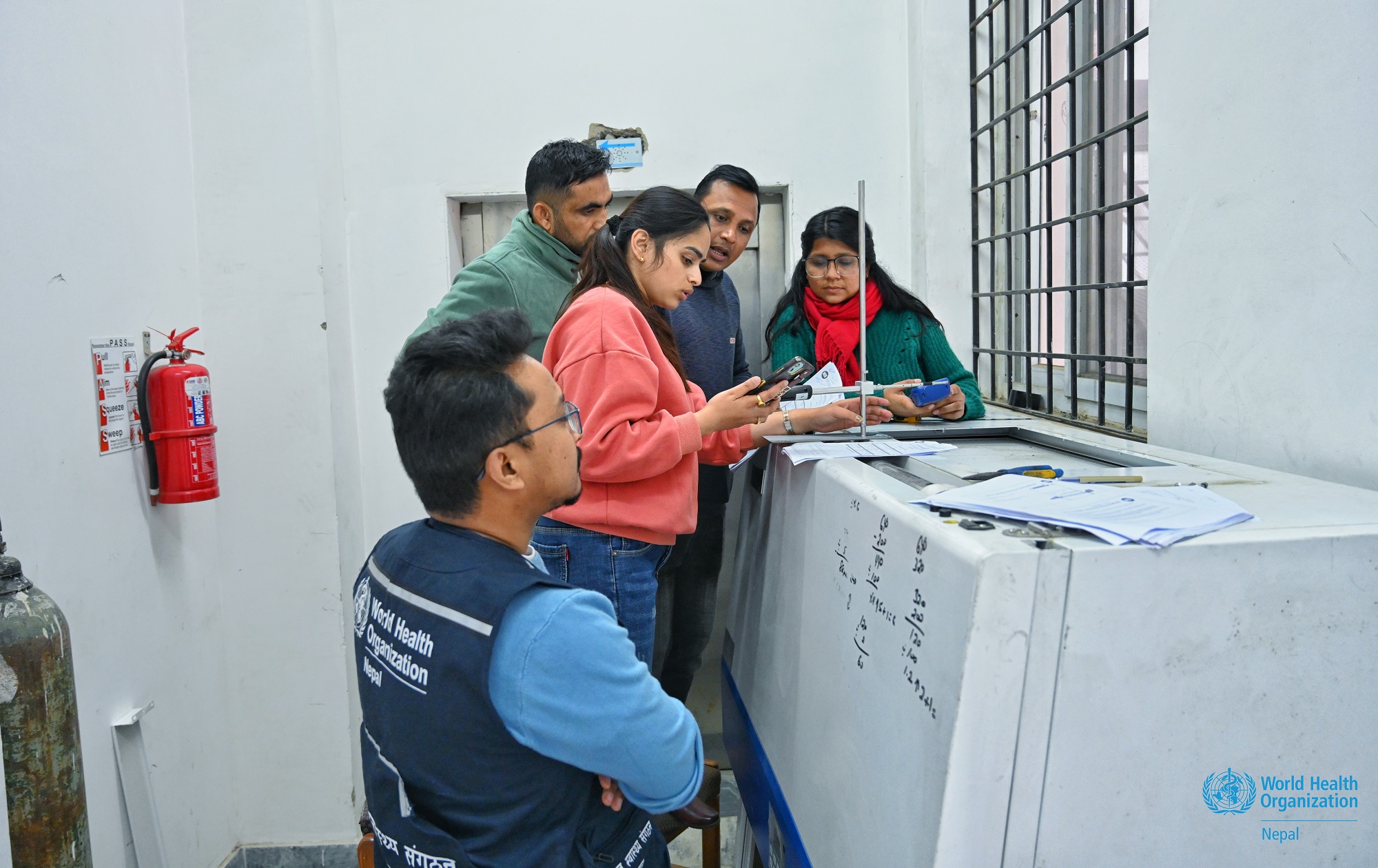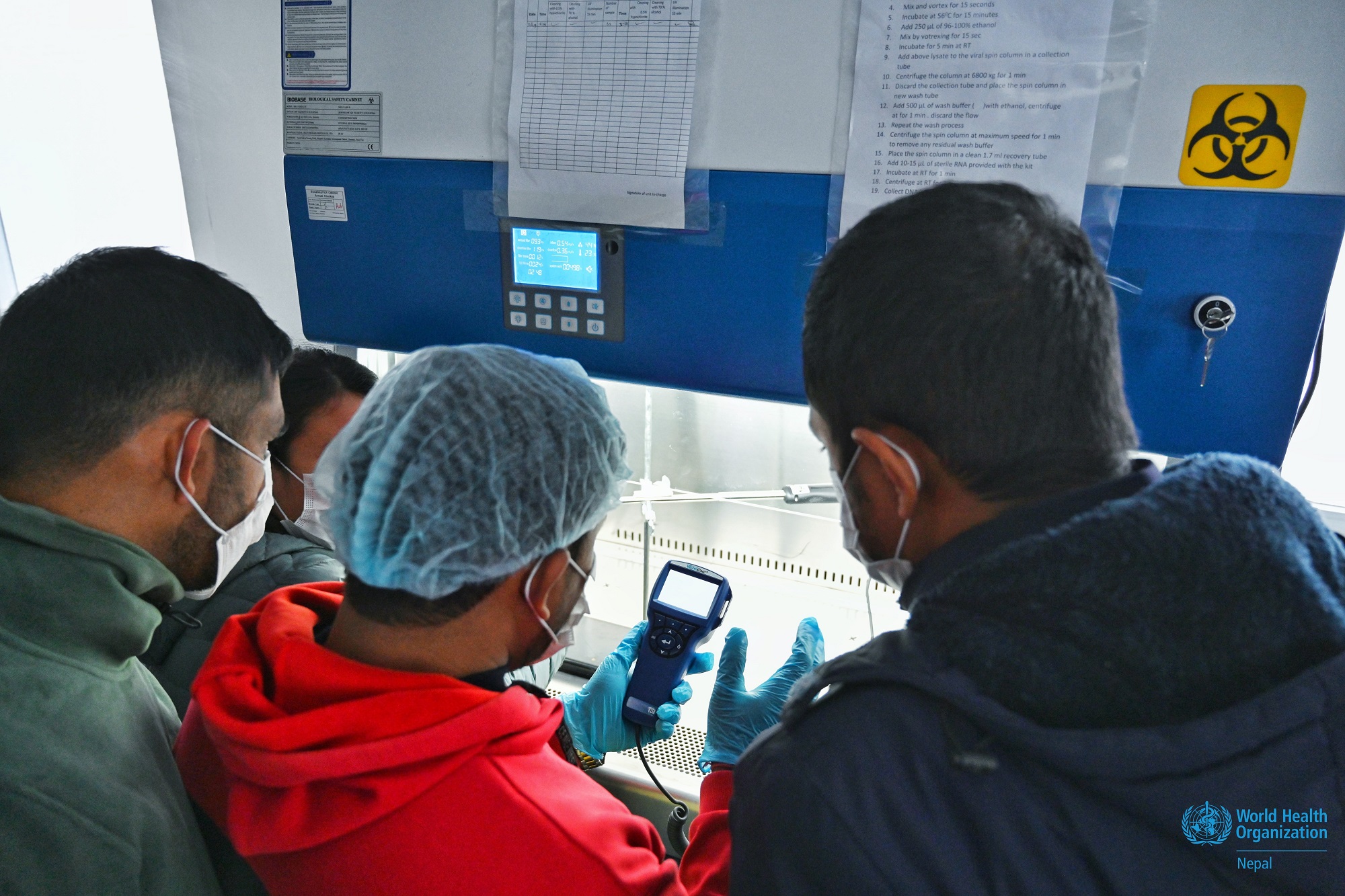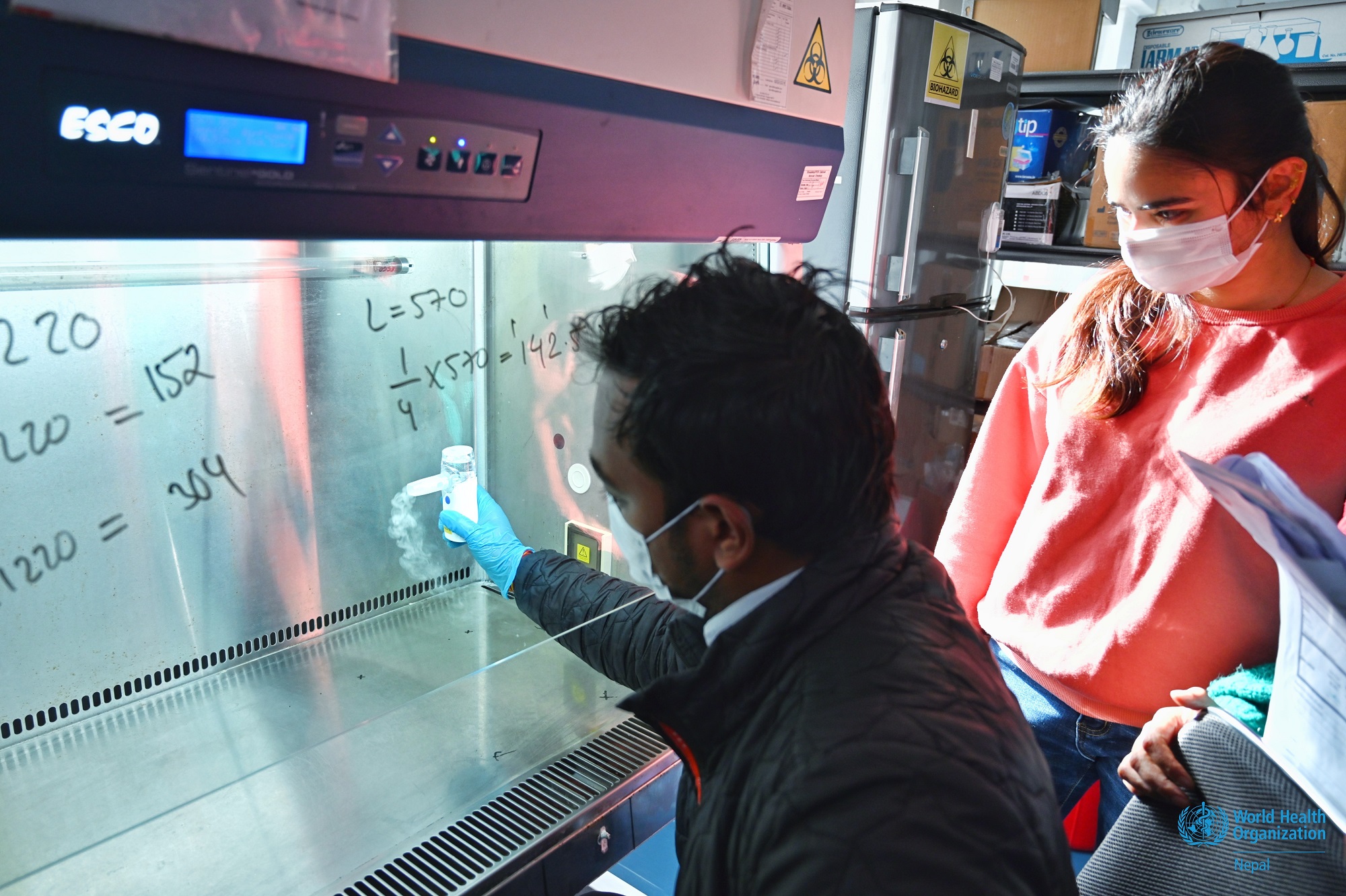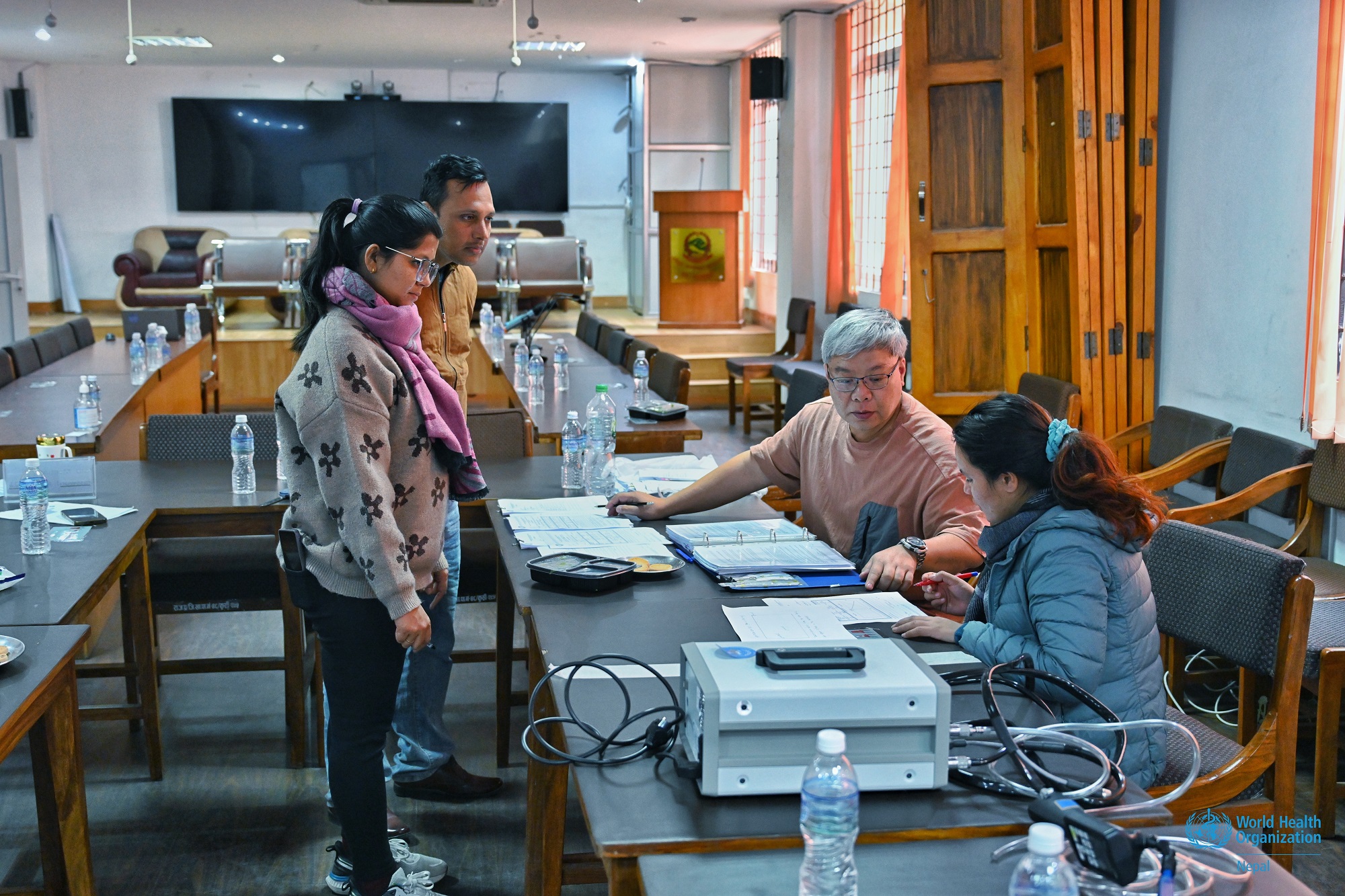In an effort to strengthen the national biosafety program, the Ministry of Health and Population (MoHP), with support from WHO, Country Office for Nepal, recently held a training on basic certification procedures of biosafety cabinets, establishing a pool of a skilled cadre of in-country certifiers.

Trainees using a thermal anemometer to test the biosafety cabinets using the exhaust method. Photo credit: WHO Nepal/S.G.Amatya
The first of its kind training to be held in Nepal was organized at the National Public Health Laboratory (NPHL) upon the request of the MoHP.

Participants setting up biosafety cabinets for an inflow velocity test. Photo credit: WHO Nepal/S.G.Amatya
“Strengthening national capacity for calibration and maintenance of biosafety equipment was one of the recommendations made to Nepal during the Joint External Evaluation (JEE) of its IHR core capacities conducted last year. WHO is pleased to have been able to support this training which has not only helped to create skilled human resources but also helped raise awareness about the need to conduct routine biosafety maintenance,” says Dr Rajesh Sambhajirao Pandav, WHO Representative to Nepal.

Participants performing a smoke test. Photo credit: WHO Nepal/S.G.Amatya
Biosafety cabinets are specialized containment devices used in laboratories to provide a controlled environment for working with potentially hazardous materials, particularly those that involve microbiological research and procedures. The cabinets protect both the laboratory worker and the surrounding environment from exposure to pathogens and preserve the integrity of the materials being studied. They require regular certification and maintenance to ensure proper functioning and adherence to safety standards. Compliance with international biosafety standards as outlined by WHO is crucial for its proper use and certification.

A proctor from NSF International instructing trainees during the final examination of the training. WHO Nepal/S.G.Amatya
The training in Nepal was conducted by the USA-based institute viz. NSF International, or The Public Health and Safety Organization, a WHO Collaborating Center on Food Safety, Water Quality, and Medical Device Safety. NSF is the only global organization certified to provide the accreditation for biosafety cabinets certifiers.

Participants and experts from the training held at the National Public Health Laboratory, Nepal. Photo credit: WHO Nepal
The 8-day training combined written and practical, hands-on examinations. After undertaking a 3-day rigorous practical examination, 9 successful biomedical engineers and technicians earned basic accreditation from the NSF. As a requirement by NSF, the field certifiers will have to examine five biosafety cabinets on an annual basis.

Final practical examinations of the training held at the National Public Health Laboratory, Nepal. Photo credit: WHO Nepal/S.G.Amatya
“Biosafety cabinets can only work effectively to protect the lab personnel when used in conjunction with good microbiological practice and procedure as per international standards. This training has helped to ensure the safety of researchers and in enhancing the overall biosafety landscape in Nepal,” says Dr Ranjan Raj Bhatta, Director of the National Public Health Laboratory, MoHP.
